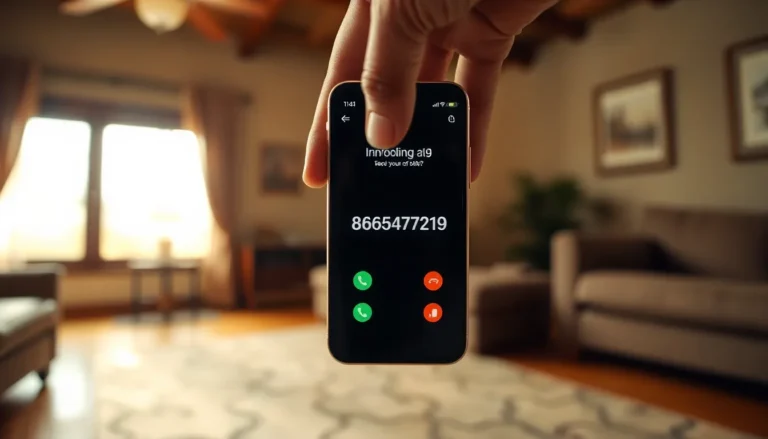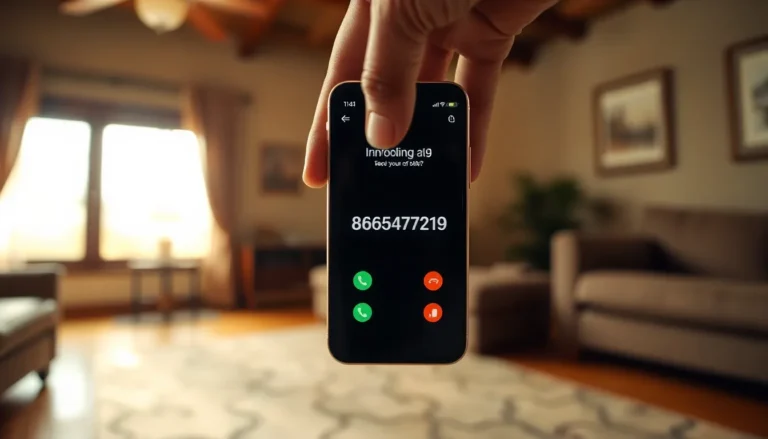Table of Contents
ToggleIn a world where keyboard warriors clash over memes and opinions, the concept of online peacekeeping emerges as a beacon of hope. Imagine a digital realm where trolls are tamed and civility reigns supreme. It sounds like a utopia, doesn’t it? Yet, with rising tensions in online communities, the need for peacekeepers has never been more pressing.
Online peacekeeping isn’t just about moderating comments or banning users; it’s about fostering understanding and dialogue in a chaotic landscape. It’s the art of diffusing heated debates before they spiral into full-blown internet wars. With a sprinkle of humor and a dash of empathy, these digital diplomats aim to create a more harmonious online experience for everyone. So buckle up as we explore the fascinating world of online peacekeeping and discover how it can transform the way we interact in the digital age.
Understanding Online Peacekeeping
Online peacekeeping serves as a vital approach to managing conflict in digital spaces. Through fostering dialogue, it aims to cultivate a collaborative online atmosphere.
Definition and Scope
Online peacekeeping refers to actions taken to resolve disputes and promote harmony within digital communities. It encompasses conflict resolution, dialogue facilitation, and community engagement. Techniques employed range from moderating discussions to utilizing humor to ease tensions. Digital peacekeepers prioritize empathy and understanding, creating safe spaces for individuals to express differing opinions. This proactive strategy emphasizes addressing issues before they escalate, enhancing the overall health of online interactions.
Importance in Modern Conflict Resolution
The significance of online peacekeeping in contemporary society cannot be understated. Digital platforms often amplify conflicts through pervasive misinformation and aggressive discourse. In this environment, online peacekeeping plays a crucial role in mitigating hostility. Engaging diverse perspectives through informed dialogue fosters a culture of respect and understanding. Through these efforts, communities can cultivate resilience against toxic behaviors. As a result, online peacekeeping not only addresses current discord but also sets a foundation for healthier future interactions.
The Role of Technology in Online Peacekeeping

Technology plays a pivotal role in facilitating online peacekeeping initiatives. Digital platforms provide essential tools that help address conflicts in real-time and establish healthier communication channels.
Digital Tools and Platforms
Various digital tools enhance the effectiveness of online peacekeeping. Social media platforms like Twitter and Facebook serve as primary venues for conflict engagement. Various applications and software allow for real-time monitoring of discussions, identifying harmful content before it escalates. Analytics tools track user sentiment, enabling peacekeepers to address emerging issues proactively. Additionally, forums and community boards foster civil dialogues by offering spaces specifically designed for constructive exchanges.
Communication Strategies
Effective communication strategies are vital in online peacekeeping. Engaging diverse perspectives promotes understanding among conflicting parties. Clear messaging helps in de-escalating tensions while encouraging participants to adopt a more collaborative mindset. Techniques such as active listening and respectful dialogue are crucial, allowing individuals to express their viewpoints without fear of backlash. Facilitating online workshops or webinars also enhances community engagement, providing participants with skills to navigate disagreements productively. By utilizing these strategies, digital peacekeepers cultivate an atmosphere of respect and empathy within online communities.
Case Studies of Successful Online Peacekeeping Initiatives
Numerous online peacekeeping initiatives demonstrate the effectiveness of digital conflict resolution strategies. These case studies highlight diverse approaches to fostering understanding and mitigating online conflicts.
Notable Examples
One significant initiative is the “Civically Engaged Facebook Group” focused on community dialogue during local elections. This group encouraged respectful discussion among diverse opinions, successfully reducing hostility. Another example involves the “Digital Resilience Program,” which trained moderators in the use of empathy and active listening. By employing these techniques, moderators effectively de-escalated conflicts in real-time discussions. The “Youth Digital Peace Alliance” also gained recognition for its workshops aimed at combating cyberbullying and promoting inclusivity among teens. These initiatives highlight the potential of structured digital engagement to promote peace.
Lessons Learned
Effective online peacekeeping requires tailored approaches to unique community needs. Understanding the specific dynamics of digital spaces enhances the success of peacekeeping efforts. Successful initiatives emphasize the importance of establishing ground rules for discussions. Encouraging participants to share personal stories fosters empathy and connection. Additionally, ongoing training for moderators improves skills in conflict resolution and dialogue facilitation. Collaborative efforts between organizations and community members can amplify impact. Finally, evaluating outcomes helps refine strategies, ensuring future initiatives remain relevant and effective.
Challenges Faced by Online Peacekeeping
Online peacekeeping encounters several significant challenges that impact its effectiveness in digital communities.
Cybersecurity Threats
Cybersecurity threats pose serious risks to online peacekeeping efforts. Cyberattacks can undermine trust in digital platforms and hinder peacekeepers’ ability to engage effectively. Hackers might target forums, compromising user data and creating fear among community members. High-profile breaches can deter participation in discussions, reducing the sense of safety necessary for constructive dialogue. Continuous advancements in cyber threats necessitate ongoing training and updates for moderators. Without proper security measures in place, peacekeeping initiatives become vulnerable to disruptions that escalate tensions rather than alleviate them. Digital peacekeepers must prioritize cybersecurity to safeguard communities and foster inclusive conversations.
Misinformation and Trust Issues
Misinformation presents a formidable obstacle to successful online peacekeeping. False information can distort perceptions and deepen divides among community members. Trust issues arise when participants question the credibility of sources, making productive dialogue difficult. Rapid spread of rumors can escalate conflicts rapidly, complicating peacekeeping efforts. Combatting misinformation requires effective communication strategies, such as fact-checking and transparency. Engaging trusted community figures to promote accurate information can help rebuild trust. Without addressing misinformation and establishing reliable sources, online peacekeeping risks failure in creating a respectful and constructive environment.
Future of Online Peacekeeping
Online peacekeeping continues to evolve, adapting to the complexities of digital communication. Innovations emerge consistently, shaping the future landscape of conflict resolution online.
Emerging Trends and Innovations
Artificial intelligence (AI) tools become more integrated into peacekeeping strategies. These tools assist in monitoring discussions, identifying escalatory language, and facilitating timely interventions. Blockchain technology offers transparent record-keeping, enhancing accountability in online interactions. Additionally, community-driven platforms encourage collaborative conflict resolution, empowering users to actively contribute to maintaining harmony. The incorporation of gamification in conflict resolution strategies illustrates engagement, making discussions more interactive and less confrontational. Collectively, these innovations represent significant advancements aimed at fostering healthier online environments.
Potential Impact on Global Peace Efforts
Online peacekeeping strategies contribute significantly to global peace efforts by dismantling misinformation. Effective digital dialogue fosters understanding across cultural divides, promoting tolerance and collaboration. Global platforms can harness online peacekeeping to address societal issues like cyberbullying or hate speech, creating safer digital spaces. Communities benefit from increased cooperation in conflict resolution attempts, thanks to collective initiatives that engage diverse perspectives. As countries confront political and social divides, the role of online peacekeeping grows increasingly vital, with the potential to influence real-world peace processes positively.
Online peacekeeping stands as a crucial strategy for navigating the complexities of digital interactions. By fostering dialogue and understanding, it addresses conflicts before they escalate. The integration of technology enhances these efforts, allowing for real-time monitoring and more effective communication.
As online communities continue to grow and evolve, the need for innovative and adaptive peacekeeping methods becomes more apparent. The lessons learned from successful initiatives highlight the importance of empathy and tailored approaches in creating safe digital spaces. Ultimately, online peacekeeping not only contributes to healthier online environments but also plays a significant role in promoting broader societal peace.






